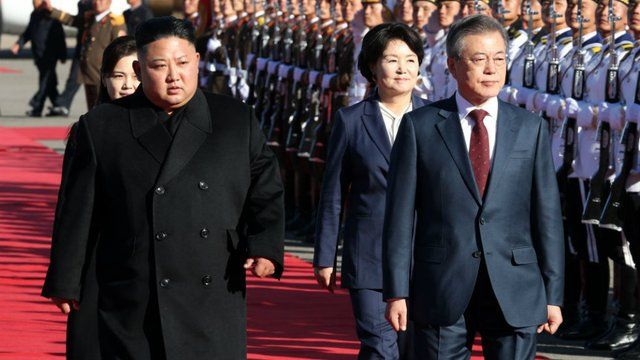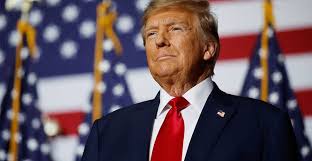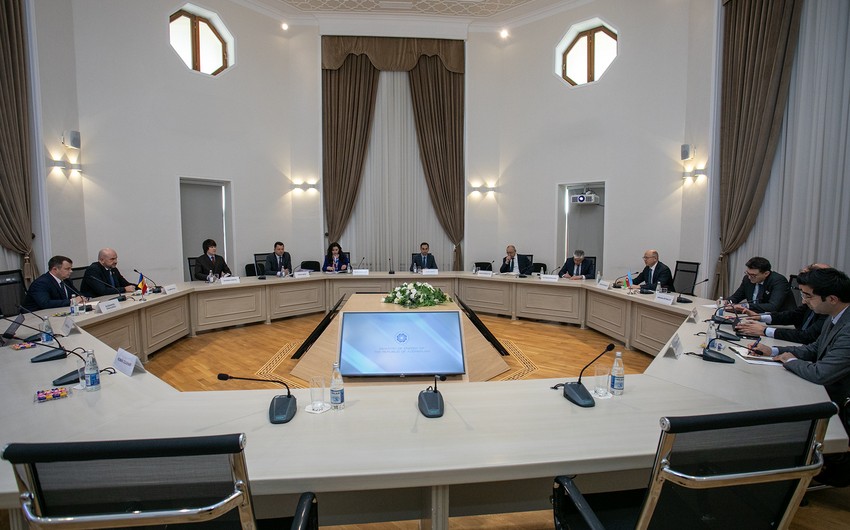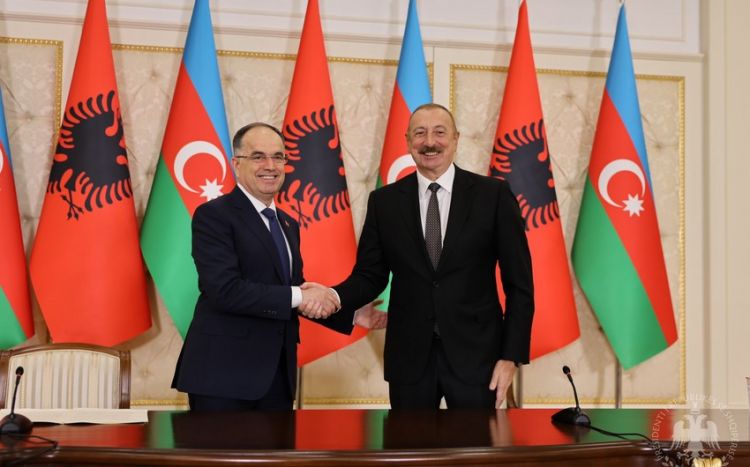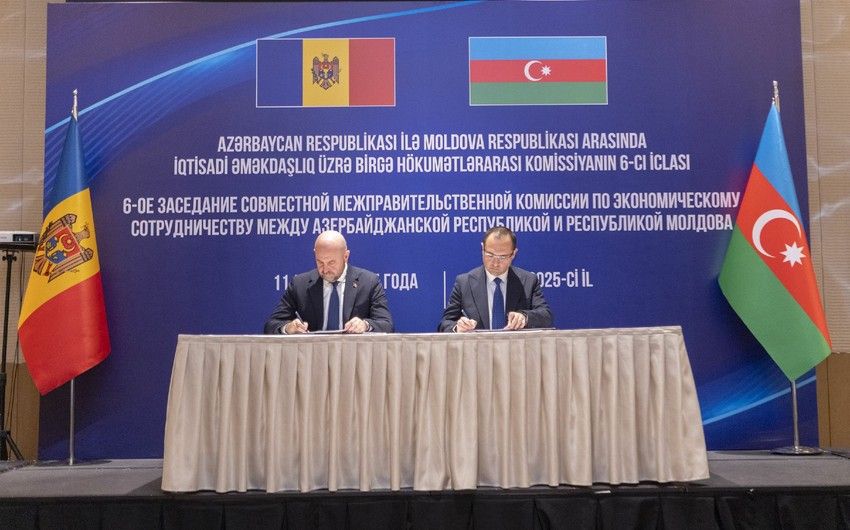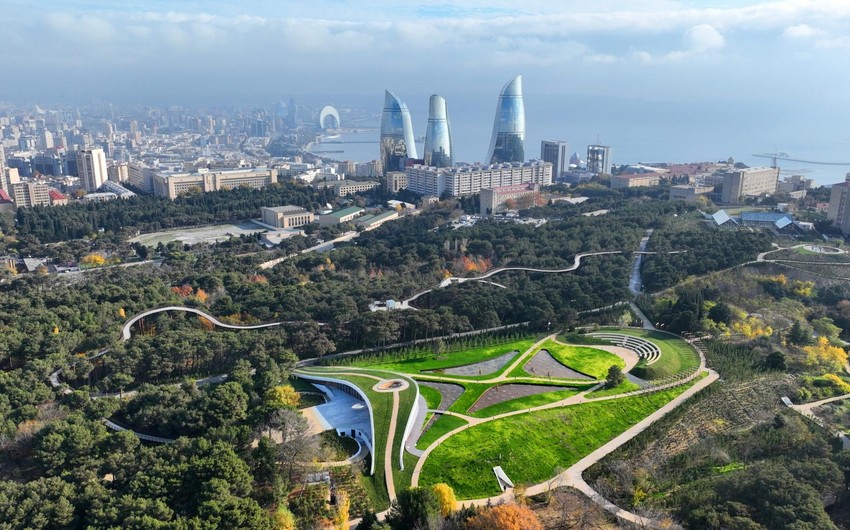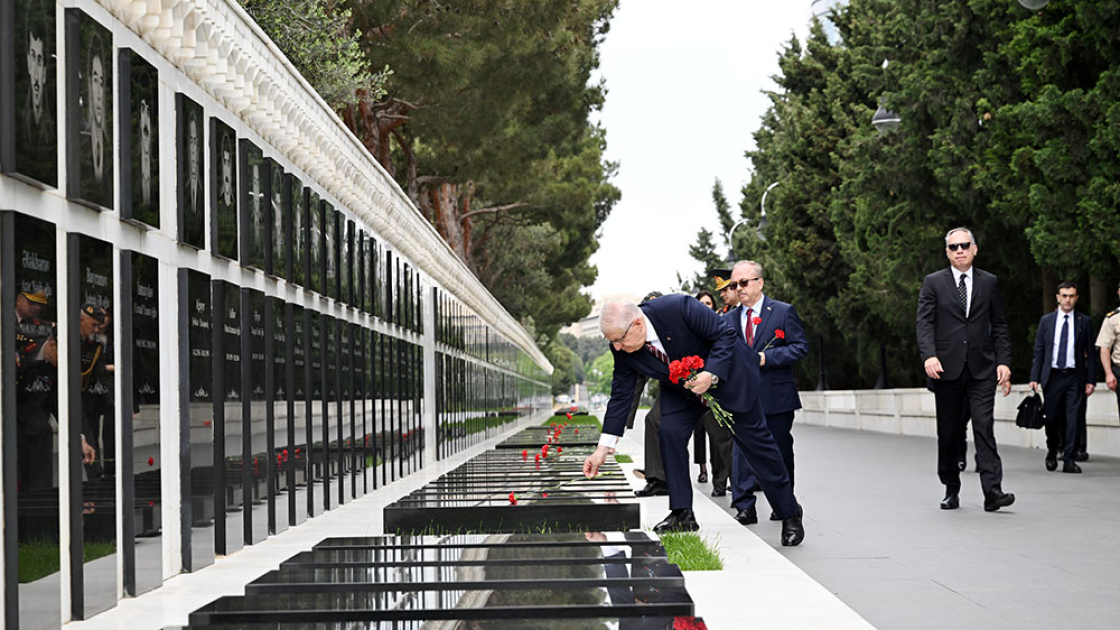Not long ago, rumors ran wild that last week’s summit between South Korean President Moon Jae-in and North Korean Leader Kim Jong Un would pave the way for a peace declaration, officially ending the Korean War to be signed at the United Nations General Assembly (UNGA) meetings this month. The third Moon-Kim meeting concluded with international media headlines about a peace agreement, even as there was no direct mention of a peace declaration. Regardless, it appears that the diplomatic ball has landed in Washington’s court.
Given the developments of the past year, it is likely that the Korean situation will be under discussion at UNGA, though it is not likely that it will be President Trump’s top priority. Historically, the United States has been wary of signing a declaration to end the Korean War, but given recent developments, it is time to reconsider the utility of that position.
Opponents decry calls for a peace declaration as a desperate attempt to secure North Korean denuclearization, and certainly that would be a terrible reason to pursue it. Make no mistake: Pyongyang has no intention of surrendering its nuclear arsenal anytime soon, and North Korea is not about to soften up merely because the Korean War ends.
The foremost reason that we should consider a peace declaration is that there is no utility in perpetuating the 1953 armistice. No one believes that U.S. or South Korean interests would be served by restarting hostilities. Anyone who has studied conflict on the Korean Peninsula can see that a war would be disastrous for both South Korea and the United States. Without a doubt, North Korea would fare worse, but the human cost, the economic catastrophe, and strategic setback to our regional and global policies are breathtaking.
In truth, it is not a peace regime that would limit our military options but the reality of a second Korean war. With my toddlers, I know that threatening punishment is only as effective as your willingness to issue it. And if a peace declaration doesn’t limit our military options, what is the use of withholding it?
It is our presence on the peninsula that deters North Korea, not the threat of rekindling the war. And should the United States ever choose to take low-level military action, the record clearly shows that we do not need an official state of war to do so. (Incidentally, North Korea knows this, too. So we should temper any expectations that a peace declaration would be anything but a moderate step in the right direction.)
Declaring an end to the Korean War will not limit our ability to deter North Korea because it will not change the military realities on the Korean Peninsula. As long as Washington is not so foolish as to withdraw forces before Pyongyang poses no threat to Seoul, we will be able to support the defense of our South Korean allies. We do not need the Korean War to justify U.S. presence in Asia; a nuclear North Korea is reason enough to remain.
And just as a peace declaration will not inspire Kim to relinquish his nukes, neither will withholding a declaration pressure him to do so. If anything, doggedly insisting that the Korean War is not actually over feeds into the narrative that North Korea’s regime has used to prop itself up for 70 years. If the United States declares an “end to hostile intent,” as Kim would like, he may get a victory at home, but he also loses the ability to invoke that crutch in the future.
To that end, declaring peace with North Korea, puts the onus for action back on Pyongyang, essentially calling its bluff. Pyongyang claims that it needs nukes to defend itself from the United States. Therefore, peace should buy some movement toward their stated goal of denuclearization. Trading the peace declaration for something else of moderate value, such as a declaration of their nuclear inventory, is one way to advance a phased approach to “denuclearization.” “Declaration for declaration” would be an appropriate counterpart to North Korea’s desire of a “freeze for freeze.”
But again, let us be clear about what a peace declaration is and is not. It is a confidence-building measure and a play for leverage. It is not a Senate-ratified peace treaty; it is not normalization of diplomatic or trade relations; and it is not aid or sanctions relief. It still leaves Washington an awful lot of gray zone to maneuver in.
Finally, the United States should support a peace declaration because our allies in Seoul want it. Washington should back the current policy, knowing full well that our security guarantees provide a failsafe for South Korea’s defense should North Korea return to brinkmanship. Rather than thwarting Moon’s engagement initiatives, the United States should work closely with South Korea to shape an engagement process that will serve the allies’ long-term interests.
It is particularly important to stand with our allies now because if we don’t, there are others who will. China, South Korea’s largest trading partner, supports Moon’s engagement policy, and so does Russia. If the Trump administration is serious about “great power competition,” it should realize that South Korea is likely to remain pro-engagement until at least the end of Moon’s term in 2021. Sooner or later, an inflexible hard line on engagement with North Korea will become counterproductive and create unnecessary divisions that our adversaries will exploit.
A peace declaration will not buy Kim Jong Un’s goodwill, but it will give the United States diplomatic leverage to constrain North Korea’s aggressive behavior and advance our strategic interests in the region. Assuming we want to preserve stability on the Korean Peninsula, support our allies, contain North Korea and its nuclear program, and compete with other great powers in Asia, we should think seriously about how and when to end the Korean War.

